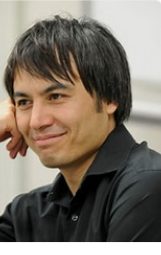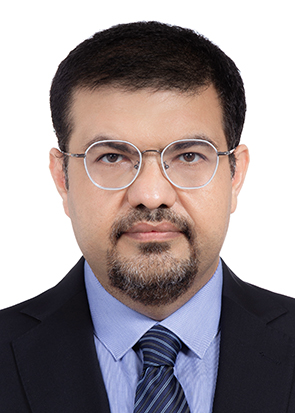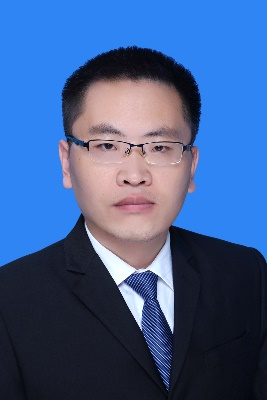
Prof. Adrian David Cheok, Nanjing University of Information Science and Technology, Australia
(IEEE Senior Member, IET Fellow, FIEAust)
Bio: Adrian David Cheok is currently a full professor at the School of Automation, Nanjing University of Information Engineering. He is a Fellow of the Institution of Engineering and Technology and a Fellow of Engineers Australia. He has had a profound impact on the fields of computer science, engineering and multisensory communications, and has served as a tenured professor at i-University in Tokyo and director of the Imagineering Institute, as well as a visiting professor at Rafael University in Malaysia and the Mihailo Pupin Institute of Technology at the University of Novi Sad in Serbia. Prof. Cheok is also a member of the Ducere Business School and CEO of Nikola Tesla Technologies. He is a World Economic Forum Young Global Leader and is ranked in the top 0.06% h-index of computer scientists in the world, and he was awarded the Distinguished Alumni Award by the University of Adelaide. He was awarded the Order of Australia, Australia's highest honor, by the Governor General of Australia on behalf of Queen Elizabeth II. He is also listed in the top 2% of Stanford scientists for 2023.
Title: Everysense Everywhere Human Communication
Abstract: This talk outlines new facilities that are arising in the hyperconnected internet era within human media spaces. This allows new embodied interaction between humans, species, and computation both socially and physically, with the aim of novel interactive communication and entertainment. Humans can develop new types of communication environments using all the senses, including touch, taste, and smell, which can increase support for multi-person multi-modal interaction and remote presence. In this talk, we present an alternative ubiquitous computing environment and space based on an integrated design of real and virtual worlds. We discuss some different research prototype systems for interactive communication, culture, and play.
_______________________________________________________________________________________________________________________________________________________

Assoc. Prof. Ata Jahangir Moshayedi, Jiangxi University of Science and Technology, Iran
(IEEE Senior Member)
Bio: Dr. Ata Jahangir Moshayedi is an Associate Professor at Jiangxi University of Science and Technology. He holds a Ph.D. in Electronic Science from Savitribai Phule Pune University (formerly the University of Pune), India. He is a Senior Member of IEEE, a Professional Member of ACM, and a Life Member of the Instrument Society of India.Dr. Moshayedi has published over 100 research papers, authored 4 books, contributed to 4 book chapters, and holds 2 patents and 16 copyrights. He actively serves as a technical program committee member and session chair for numerous international conferences. His current research focuses on robotics, particularly the development of autonomous guided vehicles (AGVs) for applications such as smart farming, food delivery and elderly care.
Title: Service Robots in Smart Aqriculture: Desian Innovations, UAlApplicationsand a Case Study in Corn Farming
Abstract: In the era of digital transformation, service robots have become a cornerstone of smart agriculture, enhancing productivity, sustainability, and precision in farming practices. This talk explores the evolving role of autonomous and semi-autonomous service robots that support tasks such as crop monitoring, soil analysis, precision irrigation, weed control, and livestock management. Special attention is given to the use of UAVs (unmanned aerial vehicles) and vision systems in corn farming, where high-resolution imaging and AI-driven analysis enable early detection of crop stress, pests, and growth variability across large fields.
Following a review of various service robot designs, the talk will focus on one of the most recently developed systems, presented as a case study to provide a deeper analysis of its practical implementation, design considerations, and field performance. By integrating advanced technologies such as IoT sensors, AI, computer vision, and GPS, service robots enable real-time decision-making and optimize resource usage while minimizing environmental impact. Current applications, key benefits, technological challenges, and future prospects will be discussed, illustrating how service robots are reshaping modern agriculture into a more data-driven and resilient industry.
_______________________________________________________________________________________________________________________________________________________

Prof. Wenke Zha, Anhui Science and Technology University, China
Bio: Dr.Wenke Zha, born in January 1984 in Shandong, has been graduated from the State Key Laboratory of Advanced Design and Manufacturing for Vehicle Body at Hunan University in 2018, obtaining a doctor degree. Now, he is a male master's degree supervisor in the College of Intelligent Manufacturing, Anhui Science and Technology University. His primary research focuses on the interdisciplinary fields of new energy vehicle power battery materials, new functional nanocomposites, and battery management systems (BMS), with over a decade of research and development experience in these areas. In the past five years, he has led a total of 26 horizontal and vertical projects, including one general project from the Anhui Provincial Natural Science Foundation, one key scientific research project from Anhui universities, and one key scientific research project from Henan higher education institutions. He has published 6 SCI papers, applied for 6 invention patents, obtained 1 PCT patent, 14 utility model patents, and 30 computer software copyrights. As the first author, he has won the second prize of the Invention and Entrepreneurship Award of the China Association for Invention and Innovation in 2024, the third prize of the Scientific and Technological Innovation Achievement Award of the China Association for Industry-University-Research Cooperation, 3 gold awards and 8 silver awards in the Anhui Province College Students' Innovation Competition (2024&2025). The research achievements of his team have been repeatedly reported by by media outlets such as China Daily.
Title: Investigation and Progress of Nanocomposites of Li/Na-ion Batteries for Robots
Abstract: Li/Na-ion batteries play an important role in the service robot and light industrial robot market (>90%) due to their high energy density and long cycle life. Series of innovative strategies have been developed by our research groups to address the urgent demand for high-performance cathode/anode materials: 1) Constructing phosphate-based cathodes with specially structured organic phosphorus sources to enhance electronic conductivity and ion diffusion rates while reducing the production costs; 2) Developing a series of anode composites through structural design and modification strategies to mitigate volume expansion and lithium dendrite issues; 3) Creating Na-ion battery cathode composites for robotic electrochemical energy storage. Experimental results demonstrate a 40% increase in operational times and 3× faster charging speed, offering a high-energy-density solution strategies with wide-temperature applicability for next-generation mobile robots
